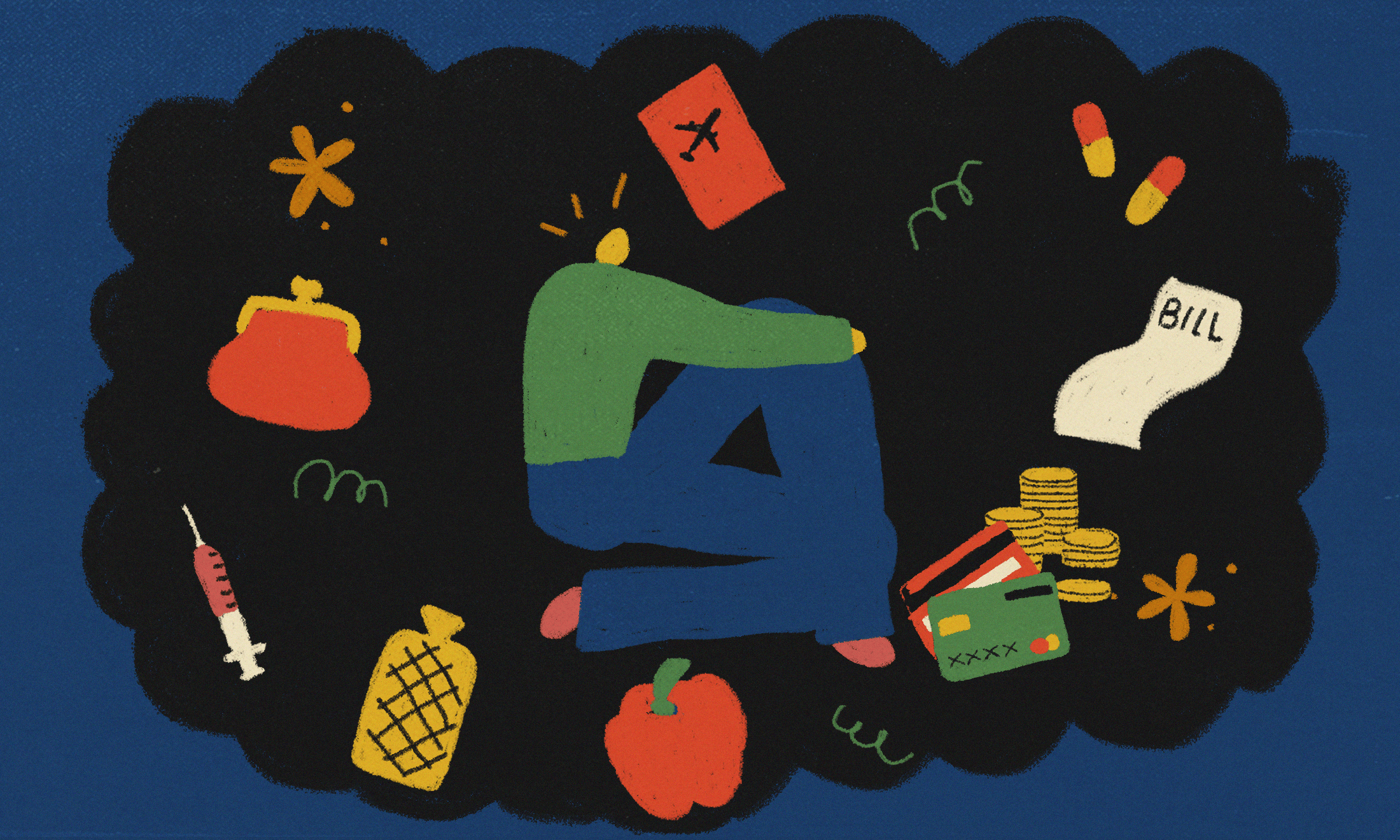
Food is and always will be political
When has the decision of who gets to eat not been political? asks food writer Camilla Makhmudi.
Camilla Makhmudi
29 Oct 2020
Illustration by Diyora Shadijanova
It was only a few months ago when Britons were enjoying 10 quid off a Wagamamas and raving about Rishi Sunak’s “Eat Out To Help Out” initiative. No one thought the catchphrase would soon change to “Eat Nowt To Help Out”, after 322 Tories somehow justified starving 1.4 million children over the school holidays. Even more shockingly, some of the general public support the decision, arguing that matters around food are not the responsibility of the state and have nothing to do with politics. But food is political and always has been.
As Ben Bradley, Conservative MP for Mansfield, tweets “extending freebies are a sticking plaster, not a solution”, a sentence likely typed out as he chows down on a pan-seared mackerel from the heavily subsidised Parliament canteen, a chorus of supporters blindly echoes him. On Instagram, well-off people do a Nigella by dusting off their winning Beef Wellington Recipe just to show us how good they’d be in poverty. While others take to sharing their cheap yet dubious meal hacks and even call for apple foraging as a way to say that food shortage is simply “laziness” – never mind the fact seven out of 10 children in poverty come from working families.
But what 54-year-old Eugene from Sussex, hiding behind an egg profile on Twitter, doesn’t realise is that parents aren’t choosing cigarettes over feeding their children. And even if they were, (they’re not), children don’t deserve to starve as a consequence. Food poverty, therefore, is not caused by personal, or in this case, parental mismanagement and negligence, but political decisions which deepen social inequality. These structural consequences therefore cannot sit in an apolitical vacuum.
“Food poverty is not caused by personal, or in this case, parental mismanagement and negligence, but political decisions which deepen social inequality”
It’s not just British people suffering from this particular cognitive dissonance – unfortunately, the idea that food is only what it says on the tin has reached the other side of the Atlantic. Millions of Bon Appétit Magazine lovers are wondering if they can still support the publication after its racism scandal. Then, just days ago, the moderators of the NYTimes Cooking Facebook group have actively taken down posts that encourage people to vote after deeming them “too political”. The majority of the 62k members then led a coup and began posting hundreds of pictures of food fashioned into the word “VOTE”. For them it’s clear – food is undoubtedly political. It may be difficult to see how political discourse can be sandwiched in between photos of twee Facebook cakes, but the rise of food insecurity in America cannot be ignored as the Trump administration aggressively tries to cut down food stamps.
Evidently, “food” describes so much more than a meal. From the personal, intimate interactions with your favourite grandma’s crumble to the UK’s £110 billion “farm to fork” food chain – food encompasses its own production, consumption, distribution, physical, historical, ideological and emotional existence. Each one of these elements of the food industry is political because of its relationship to access and distribution. Historically, Britain’s imperialism and colonialism cannot be recalled without the country’s agenda for direct food access and globalisation. Kenya-based analyst Joe Kobuthi writes: “food has always been a fundamental tool in the process of colonisation. Through food, social and cultural norms are conveyed, and also violated.”
“The pursuit of spices, creation of sugar and plantation economics were done in the name of access and a richer, brighter, tastier future for Britain”
The pursuit of spices, creation of sugar and plantation economics were done in the name of access and a richer, brighter, tastier future for Britain. Now, one-quarter of all greenhouse emissions come from global food production and the painful existence of chlorinated chicken, as well as the obsessive use of single-use plastics in supermarkets, are seeming “sacrifices” in the name of easier and cheaper access to food. From the recent news that Nigerian authorities were refusing to release supplies stored from the previous Covid-19 lockdown to Brazilian farmers burning parts of the Amazon for cattle rearing – clearly, access and production is often used as a political tool to reward and punish.
In fact, we’re so far removed from our systems of food production and distribution, that we automatically individualise waste and harm, instead of seeing it as part of a larger system. Just recently, there was mass public outcry at the artwork at Goldsmiths University called Grounding by Rafael Pérez Evans, in which the student artist dumped 29 tonnes of surplus carrots onto the street. Many criticised the work as “wasteful” and insensitive to the 40% of children that live below the poverty line in Lewisham. But the food was ejected by the food production system and scheduled to be taken to a farm to feed livestock. The artist used carrots to make a statement and bring awareness about food waste. Also, people are visibly out of touch if they think those carrots are enough to feed all the kids of South East London – they’ll be glowing orange by the end of half-term!
“We owe it to each other to not only vote with our ballots or wallets, but also our mouths”
The point is – sustainability or access to food can’t be reactionary or whimsical, but needs to be supported with a political framework that lets everyone eat. We shouldn’t expect Marcus Rashford to single-handedly lead the campaign to feed the hungry children of Britain – instead, we need to challenge the government of a country that, while being the sixth richest economy, can’t afford to feed starving kids. If we can afford to waste billions of pounds on a malfunctioning Test and Trace system or paint Boris Johnson’s airplane, there is no excuse.
When has the decision of who gets to eat and who doesn’t not been political? Our Conservative government is actively using food as a political tool in denying the most vulnerable people in our society a human right. Apart from food banks, local restaurants on the high street and even Papa John’s Pizza, community-driven initiatives are offering free meals amidst the backlash. Even if these projects are promoted and given financial support, they are ultimately unsustainable. Where have we got to as a society if even McDonalds is willing to do the job our own government isn’t?
Remember that before the first bite of breakfast, there are thousands of “votes” we all cast, from how the food we eat is grown and the labour that surrounds it to the cultural origins of that meal. Our choice of the supermarket, the brand and the quality of produce – each decision has global influence. Food is political because our communities make it and we shape it and are shaped by it. We owe it to each other to not only vote with our ballots or wallets, but also our mouths.








